Psychologists believe our personal spaces reveal more about us than we realize, and the bedroom, our most private retreat, is a mirror of who we are beneath the surface. From color choices to how we arrange our furniture, every detail reflects hidden parts of our identity, emotions, and habits. Whether you’re neat and minimalist or creative and cluttered, your bedroom silently tells your story. Here are ten fascinating things your bedroom reveals about your personality, according to psychology.
1. The Level of Cleanliness Reflects Mental Clarity
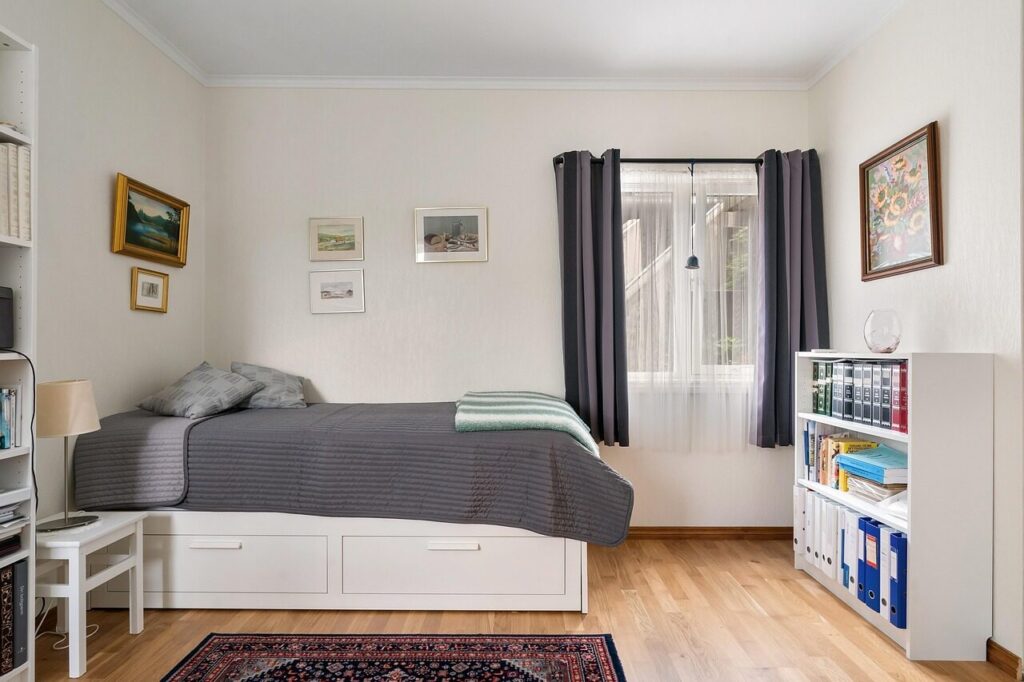
A spotless bedroom often mirrors a person who values control, order, and mental peace. Psychology research suggests that people who maintain tidy rooms tend to be disciplined, goal-oriented, and emotionally stable. Conversely, a messy space may indicate creativity or a free-spirited nature, but it can also reflect stress or decision fatigue. The state of your room often mirrors your mental clarity. When life feels chaotic, your surroundings usually follow suit without conscious intention.
2. Your Color Palette Reveals Emotional Energy
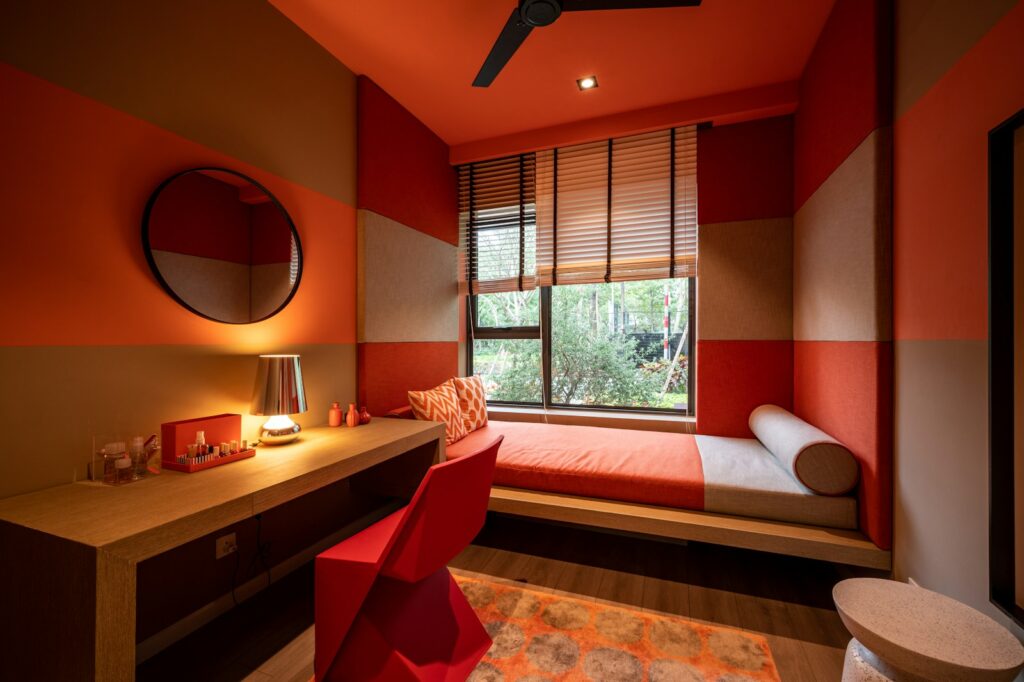
The colors you choose for your bedroom profoundly affect and reflect your inner emotional world. Soft tones like beige or sky blue suggest calmness and a love for serenity, while bold shades such as red or deep purple reveal passion and confidence. Psychologists note that people who prefer darker hues often seek depth and comfort, whereas bright tones suggest optimism. Your color palette is a silent storyteller, shaping not only how you feel but also how others perceive your personality.
3. Minimalism Signals Control and Intentionality
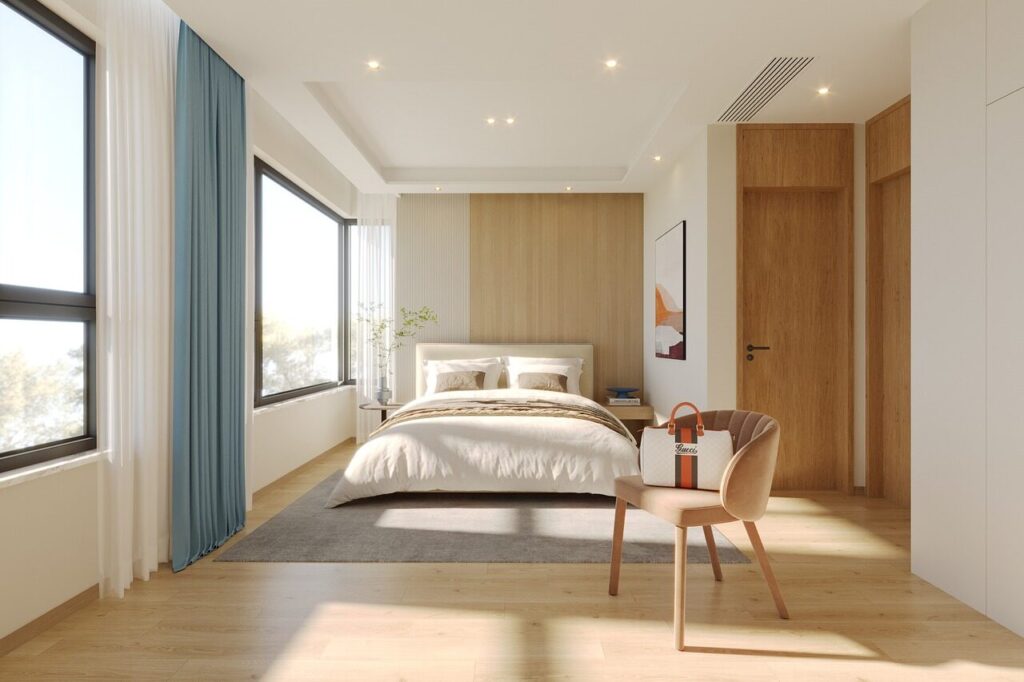
If your bedroom is clean-lined, with minimal furniture and simple décor, it speaks of someone who values purpose and focus. Minimalist individuals often find comfort in structure and dislike unnecessary distractions. Psychological studies link such spaces to people with strong organizational skills and a desire to simplify life. Every item in their room has meaning, showing they prefer quality over quantity and find emotional peace through visual order and balance.
4. A Cluttered Room Reflects Creativity and Emotional Depth
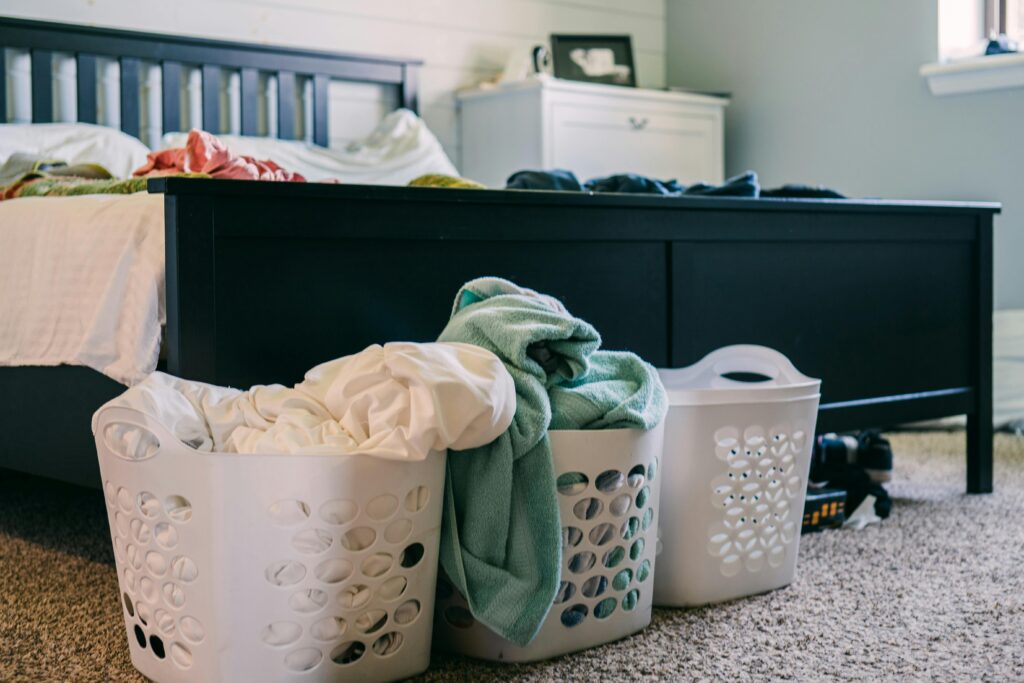
While clutter can look chaotic, psychology views it as a sign of active mental energy and emotional depth. People with cluttered bedrooms often juggle multiple ideas or creative pursuits simultaneously. They may struggle with routine but thrive in freedom and spontaneity. Researchers at the University of Minnesota even found that messy environments can inspire innovation. In short, a cluttered space doesn’t always equal disorder; it might reflect an imaginative and open-minded personality.
5. Sentimental Items Reflect Emotional Attachment
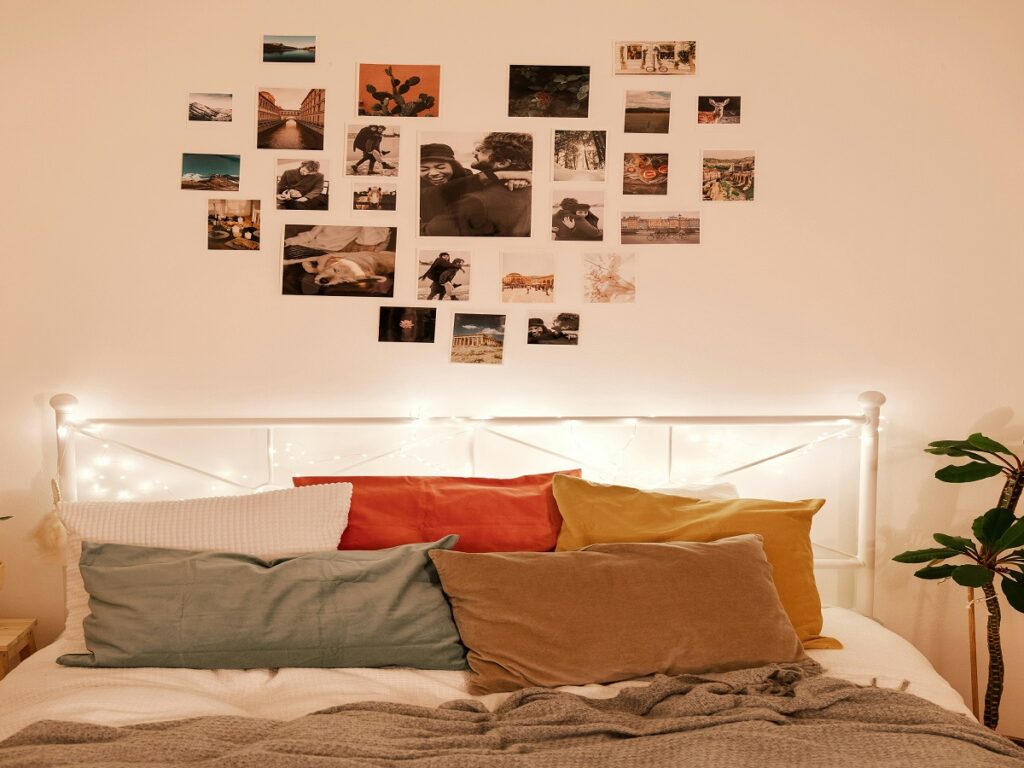
If your bedroom features keepsakes, photos, or childhood mementos, you likely have a deeply nostalgic and emotionally grounded nature. Psychologists associate this with people who find comfort in memories and personal connections. Sentimental decorators often value relationships and history over trends or minimalism. Their rooms tell stories of love, family, and moments they wish to keep close. It shows a sensitive side that treasures emotional bonds as much as material surroundings.
6. Books and Art Indicate Intellectual and Creative Curiosity

A bedroom lined with bookshelves or art pieces often belongs to someone intellectually curious and creatively expressive. Psychological studies link book lovers to open-mindedness, empathy, and a hunger for self-improvement. Similarly, displaying artwork signals aesthetic appreciation and emotional intelligence. Whether you read philosophy, fantasy, or poetry, your choice of books and visuals mirrors the dimensions of your inner world and the curiosity that fuels your personality.
7. Lighting Choices Reveal Mood Orientation
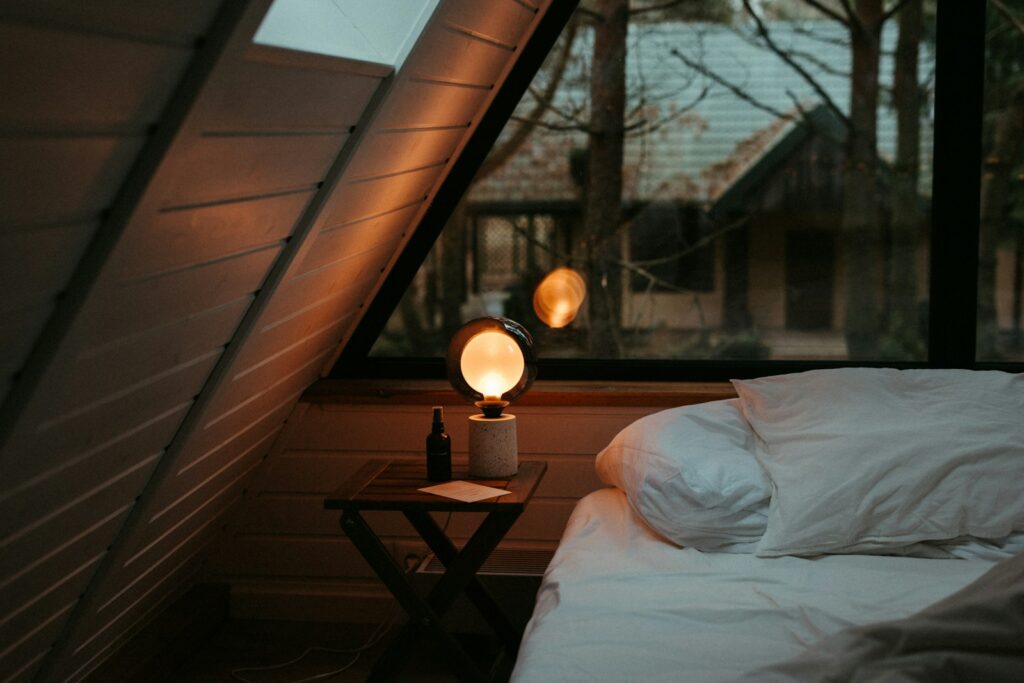
The lighting in your bedroom says a lot about your emotional orientation. Warm, dim lighting often reflects introspection and sensitivity, while bright white light suggests energy and productivity. Psychologists observe that individuals who favor natural light are generally optimistic and forward-looking. Those who enjoy moody lighting tend to be reflective and enjoy solitude. Light doesn’t just shape atmosphere; it mirrors how comfortable you are with vulnerability and emotional openness.
8. Bed Placement Reflects Comfort Zones and Security Needs
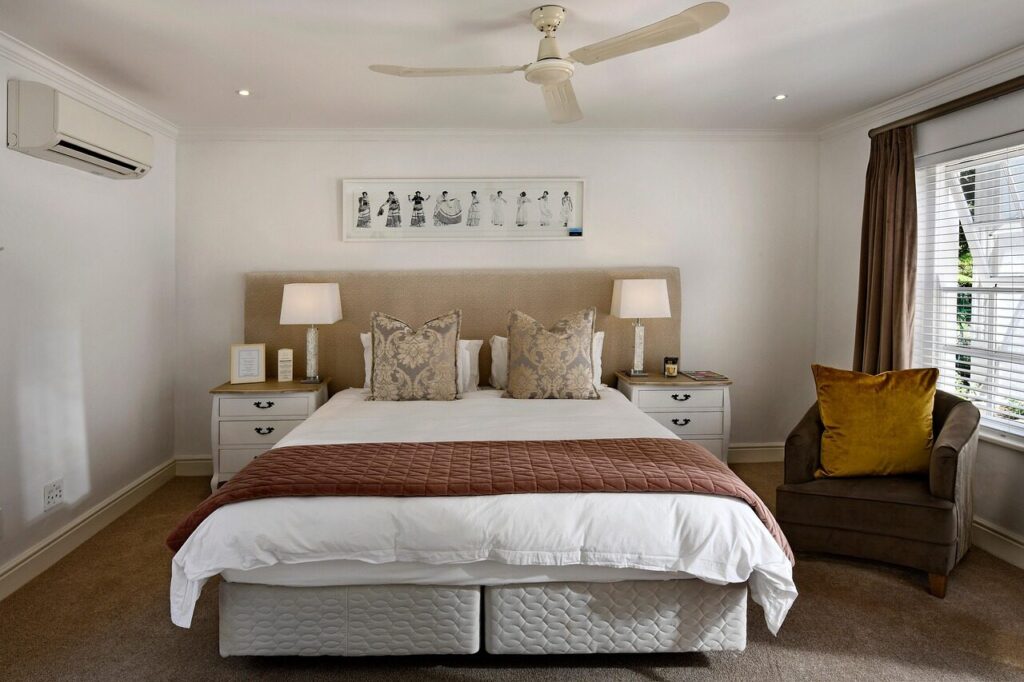
Where you position your bed may reveal your subconscious approach to safety and control. Psychologists say people who place their beds against a wall or corner often value protection and emotional security. In contrast, those who position it in the center of the room tend to be confident and open to new experiences. Bed placement also reflects whether someone prefers predictability or flexibility, an unseen window into one’s sense of personal grounding.
9. Décor Themes Express Identity and Aspirations
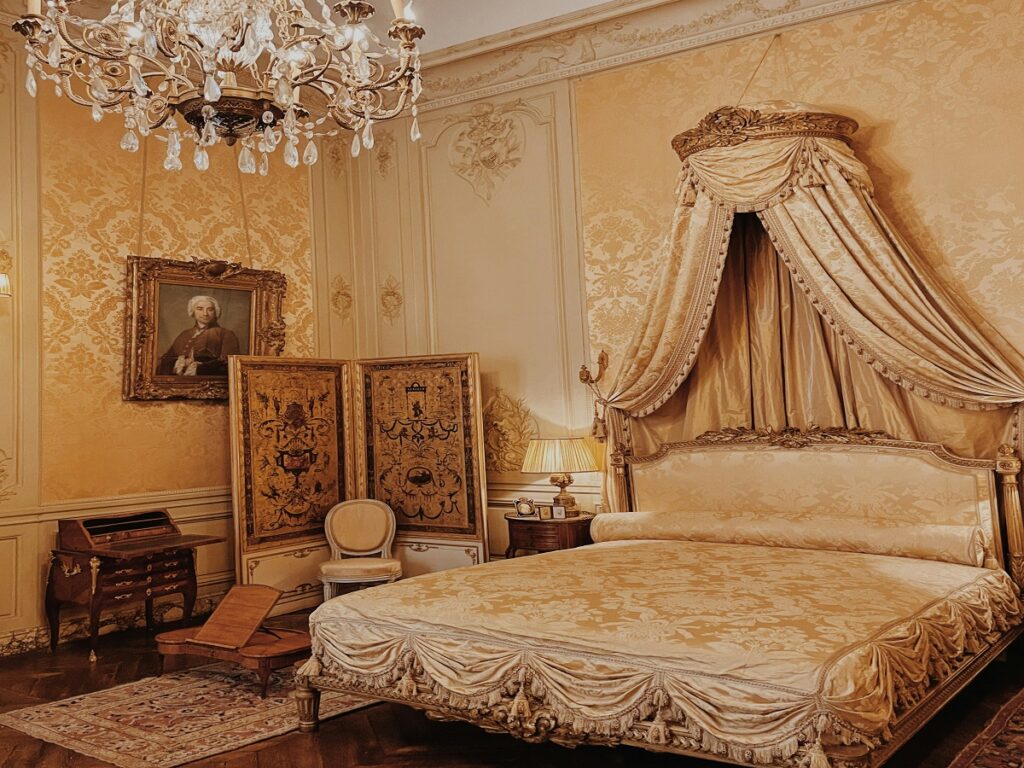
The theme or style you choose, bohemian, modern, vintage, or rustic, speaks volumes about your self-expression and aspirations. Psychology suggests that thematic choices often project how you wish to be perceived or the emotions you want to evoke daily. A modern setup implies ambition and forward-thinking, while vintage lovers often cherish nostalgia. Your décor acts as a silent language, reflecting who you are and, more subtly, who you wish to become.
10. Technology Presence Mirrors Lifestyle and Boundaries
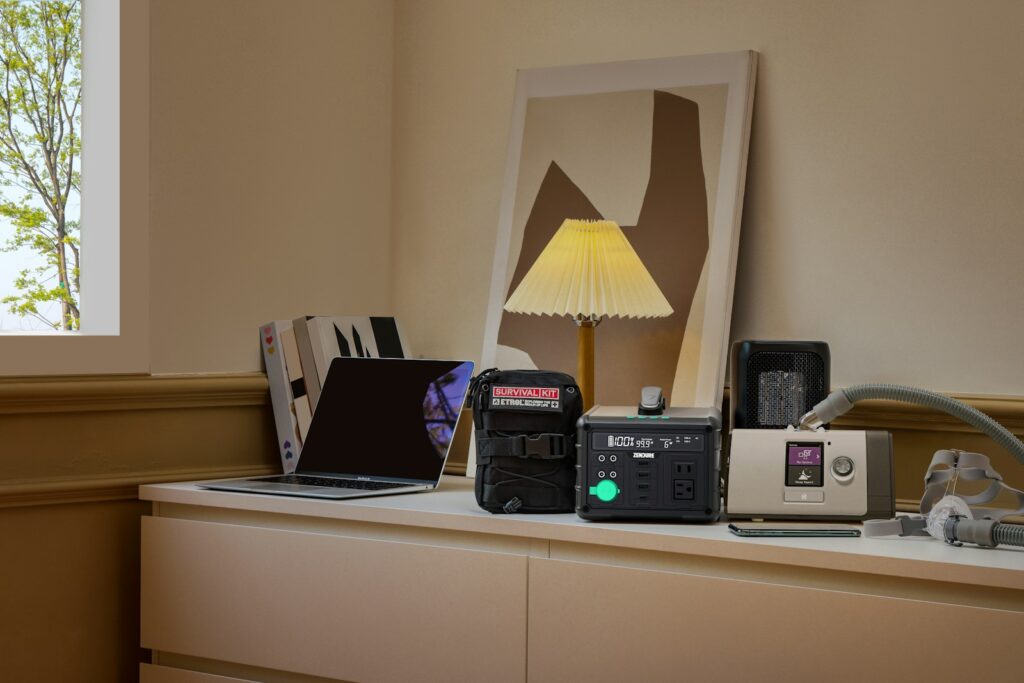
A bedroom filled with gadgets, screens, or smart devices signals a highly connected, fast-paced personality. It may suggest ambition, but also difficulty unplugging. Psychology notes that people who consciously keep technology minimal often value peace, mindfulness, and personal boundaries. Whether you fall asleep with your phone beside you or keep it out of reach, your relationship with technology reveals how you balance productivity with emotional rest.
Comments